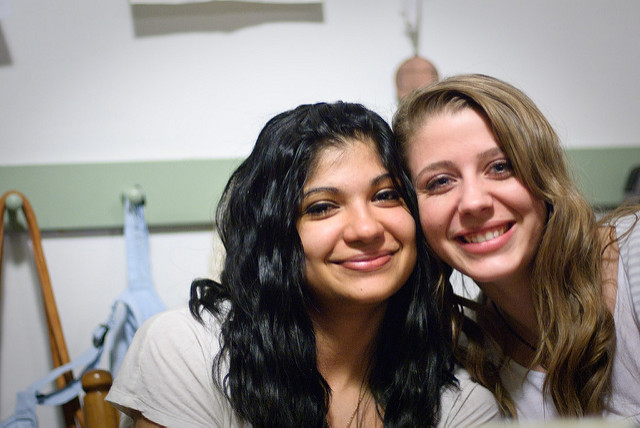Graduation and Life Long Vocation
By Elisabeth Urtel
The unsolicited question to college graduates, to which there is no single correct response:
“What do you see yourself doing in the future? Where do you plan on going with that?”
On frequent occasions – encounters with old friends, family reunions, meeting new members at church – I find myself struggling to answer that question gracefully, and with Christian love. I hold a B.A. in music and am working toward receiving a master’s degree in church music plus a master’s in theology – at the same time. Growing up in some unconventional church situations, including my family worshipping in our living room with cassette tapes, I longed for the opportunity to be connected with “the whole Christian church on earth,” and waited until studies at a small Lutheran college to join a congregation with whom I was in fellowship.
Studying and discussing the issues by which the Church stands and falls itself is one of the most enriching pursuits for any man or woman. Understanding the Law and Gospel division of the historic liturgy, the structure of a biblical hymn, the centrality of the congregation in worship, and the sacramental emphasis of the Lutheran divine service is magnified by a basic yet comprehensive training in God’s Word, such as what is found in a laymen’s or deaconess program. Yet, the value in religious education isn’t in the embossed piece of paper received at the end, but the process.
Those who pose the “future plans” question to me might have a slightly different view of vocation than I do. Maybe if I admit that I have landed my dream job as a church music director, published a book on hymnody, and hope to marry a pastor that will financially support me, others would be satisfied. Still, the worth of the continual process is discounted as not being vocation.
In his 1522 sermon on “The Estate of Marriage,” Martin Luther praises even mundane activities (in this case, caring for a baby!):
What then does Christian faith say to this? It opens its eyes, looks upon all these insignificant, distasteful, and despised duties in the Spirit, and is aware that they are all adorned with divine approval as with the costliest gold and jewels.
Therefore, vocation is…
- holding open a hymnal for a child at church so he or she can see the words.
- encouraging a seminary student who’s concerned about giving his first sermon.
- neatly arranging new books on the return cart so your supervisor will have less additional work to do.
- service-playing (and service-playing well).
- posting Christian edification on social media, not just self-promoting items.
- learning the issues at hand in your home congregation, and urging the voting members to advocate the orthodox viewpoint.
- even bringing your pastor a fresh cup of coffee, even if the store lines and stop lights seemed tedious.
Today, we also like speaking of organized church work as a “ministry” – women especially want to know that their work is still important, even though it’s rightly subordinate to the public ministry of the Word. I hope that more churches will begin teaching the importance of vocation – your Christian faith where you are at, the space between baptism and eternal life in heaven.
Only God knows the answers to those “future plans” inquiries. As we are clothed in Christ’s righteousness, however, He looks upon the humble steps of faith as vocation’s fulfillment itself.
Elisabeth Urtel graduated Bethany Lutheran College with a bachelor’s degree in church music and religion. Currently, she is working on her master of church music from Concordia University Wisconsin as well as an master of arts in Lutheran Theological Studies from Bethany Lutheran Theological Seminary. An active parish musician, she may also be followed at Her and Hymn.


